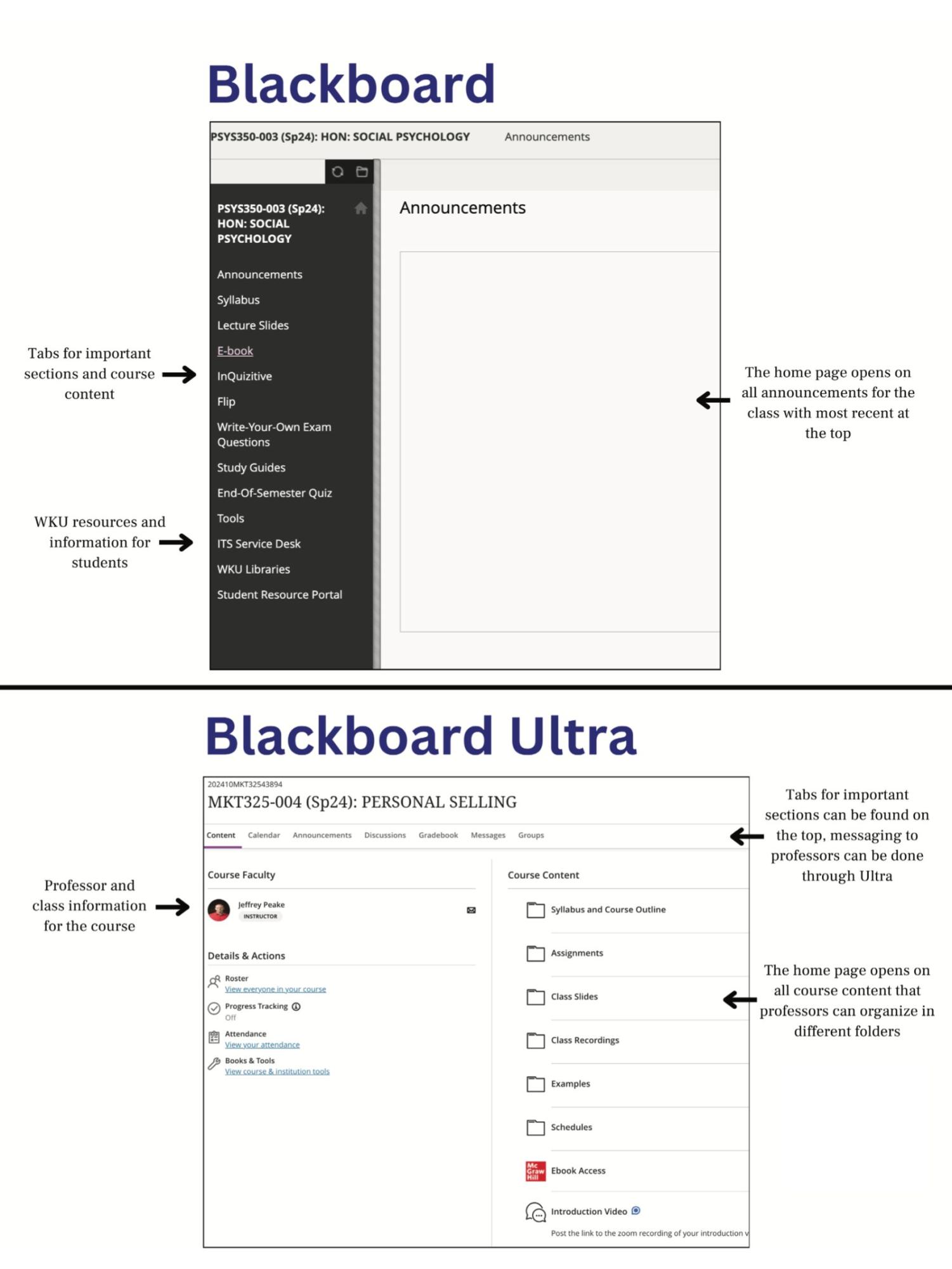Common classroom tools like Blackboard have begun to see a change with the recent rise and development of artificial intelligence.
Blackboard, powered by Anthology, is the “Learning Management System that allows students and instructors to interact on an online platform,” according to WKU’s website.
Blackboard as a whole has now begun transitioning to what is known as Blackboard Ultra, which, according to Anthology, is a new course view that offers “a modern, intuitive, and personalized interface.”
Ultra, which will be fully implemented into WKU classrooms by the 2025 winter session, allows for a more modernized appearance along with a more mobile-friendly interface, making student access more convenient and easily accessible on the go.
In terms of organization, Ultra is divided into modules, or thematic units, that help faculty and students alike to use the site with more ease.
Hannah Digges Elliott, senior instructional designer for the Center for Innovative Teaching and Learning, and Marko Dumančić, assistant provost for faculty development and student success, director for CITL and associate professor of history, have both worked closely on implementing the best practices into the classroom for student and faculty success.
Elliot has been at WKU for nearly 14 years and focuses mainly on teaching and learning in the physical and technology-enhanced spaces of the classroom.
Dumančić has been at WKU for a decade and his job involves three distinct elements: WKU online, faculty development and student success initiatives that originate in the Provost’s Office.
As AI continues to grow in the classroom, the creators of Blackboard have implemented new features to help faculty with the design development of their courses.
“It can’t do it for them, [and] it’s not like they say ‘give me a course on this’ and it does it, but there are some key things, and they call it the AI Design Assistant,” Elliott said.
This new assistant will allow faculty to put in ordering objectives, and the assistant will then produce a “module shell,” which is a folder with a picture or description of the content.
The assistant does not create the content, but it will help to organize potential ideas.
Faculty are also able to choose the number of modules they would like and the assistant will then implement that as well.
“The idea behind a lot of Blackboard’s AI feature is that it’s a starting point, not an ending point,” Elliot added.
Blackboard’s AI features have also implemented a rubric creation option in which faculty can put in an assignment description, which generates a rubric matching the assignment. It is free to edit and post for student view.
Faculty members have reported positive feedback with the new implementation of Ultra. Marcus Brooks, assistant professor in the sociology and criminology department, is one of them.
“In general, I like it better. It’s not as busy and is a little bit more streamlined,” Brooks said.
With many concerns arising from faculty that students are using AI improperly in the classroom, Dumančić and Elliott had some insight into what AI could mean for the future of education.
“We want students to be prepared for their lives outside of Western and the truth of the matter is, a lot of industry is moving towards the use of AI,” Elliot said. “So, teaching responsible use, and having those open conversations, as Marko [Dumančić] mentioned, is very important.”
Dumančić is appreciative that, even with the uneasiness that follows change, there continues to be patience, grace and forbearance in the community of WKU as it continues to implement AI and Blackboard Ultra into a classroom setting.
“Technology in and of itself is neutral, right? So I think it all comes down to how we both as faculty and staff and our students choose to deploy it,” Dumančić said.
News Reporter Kaylee Hawkins can be reached at kaylee.hawkins407@ topper.wku.edu.



